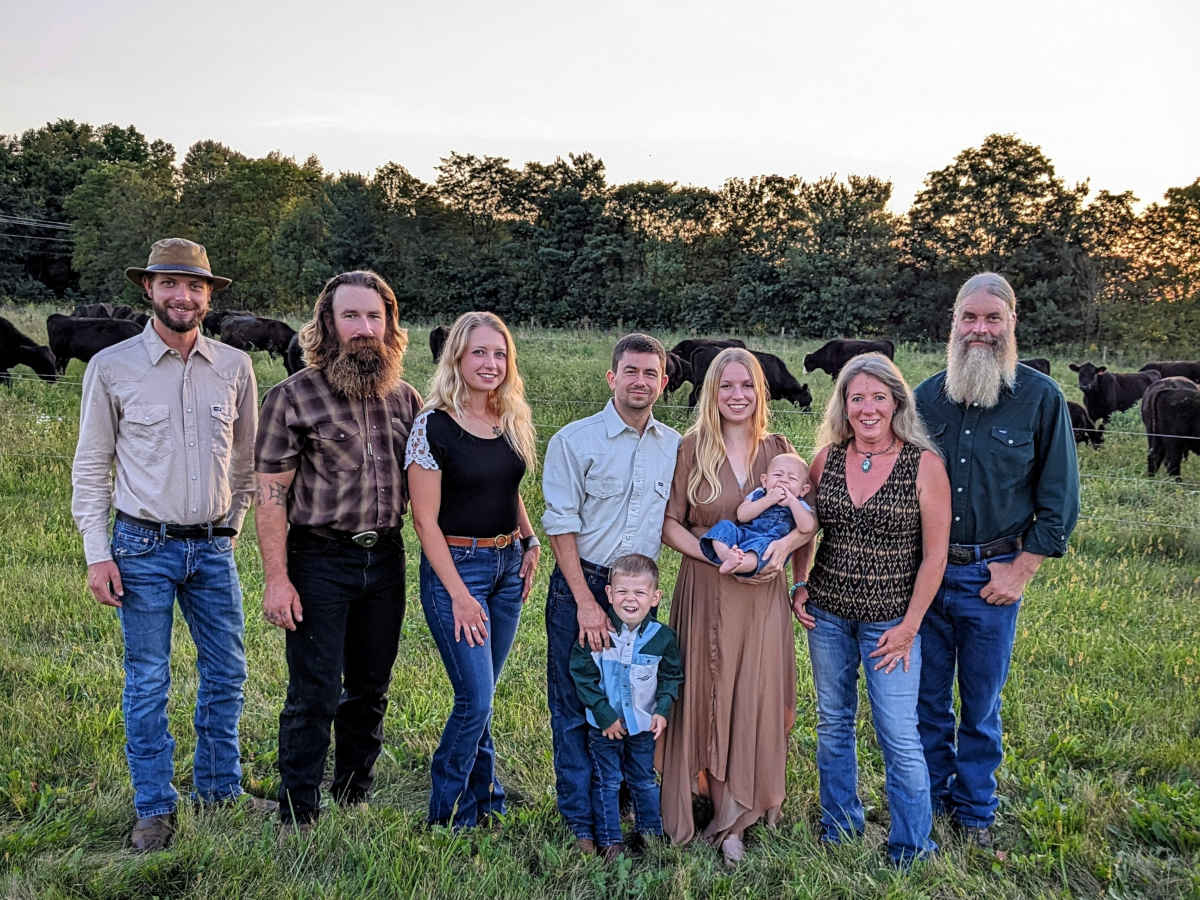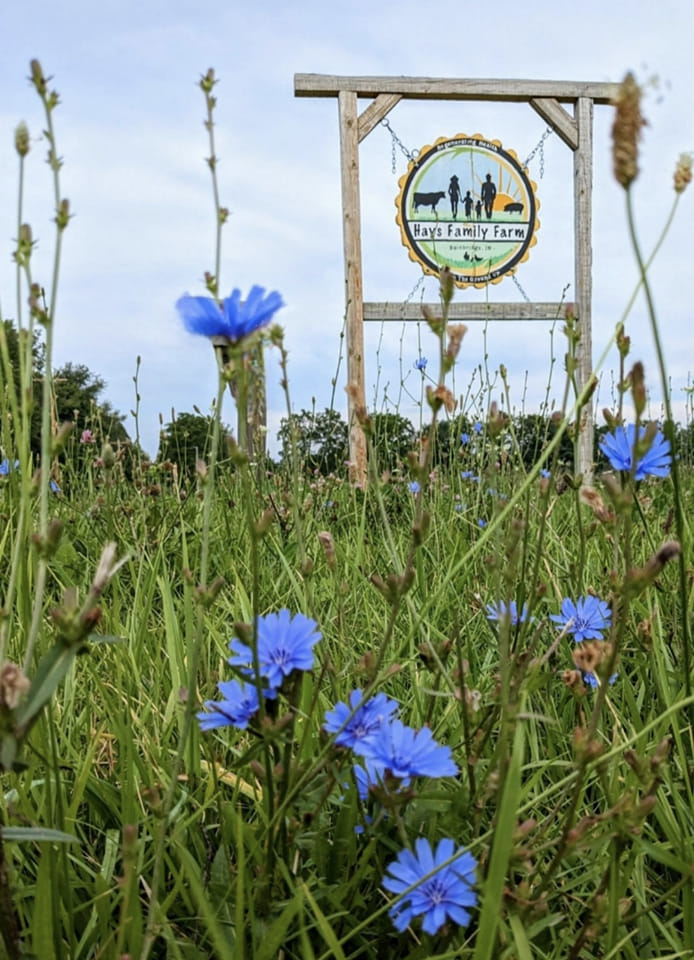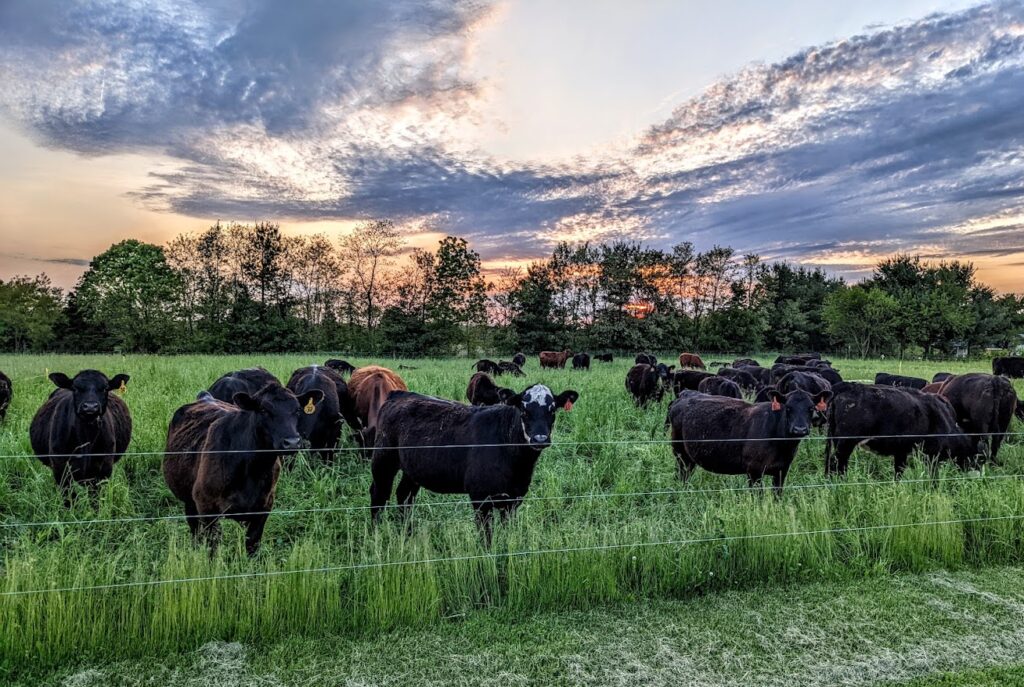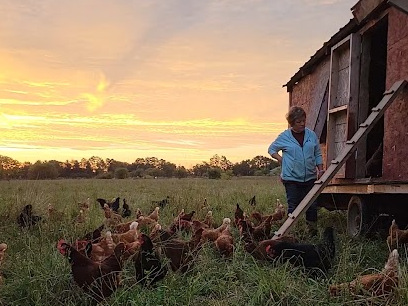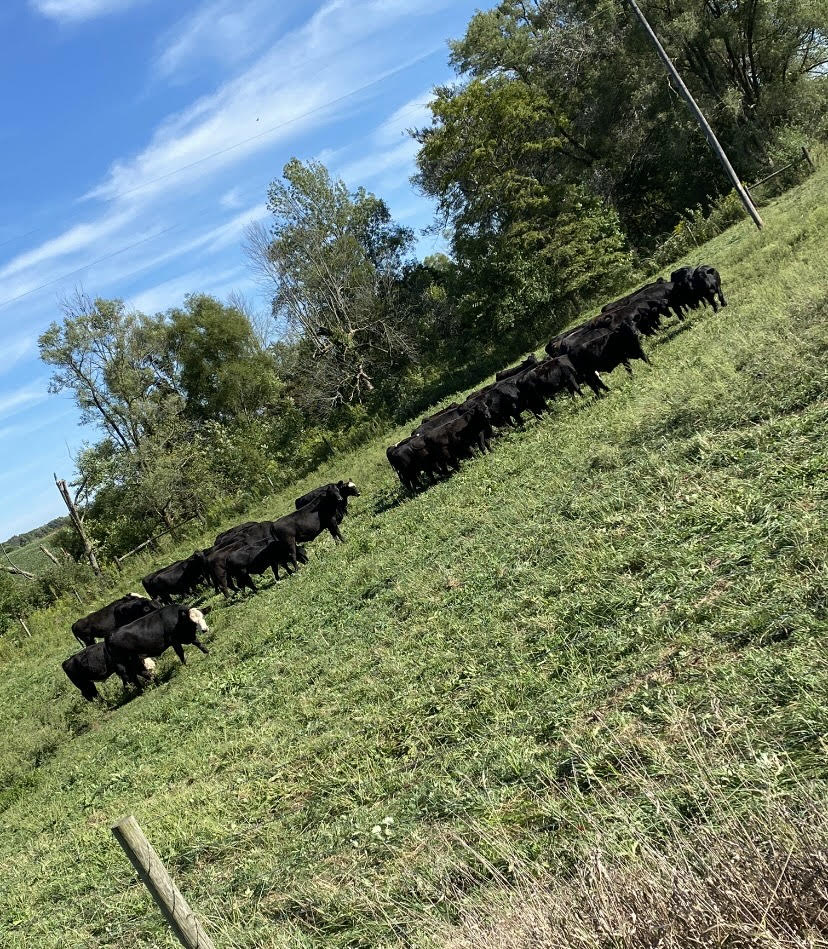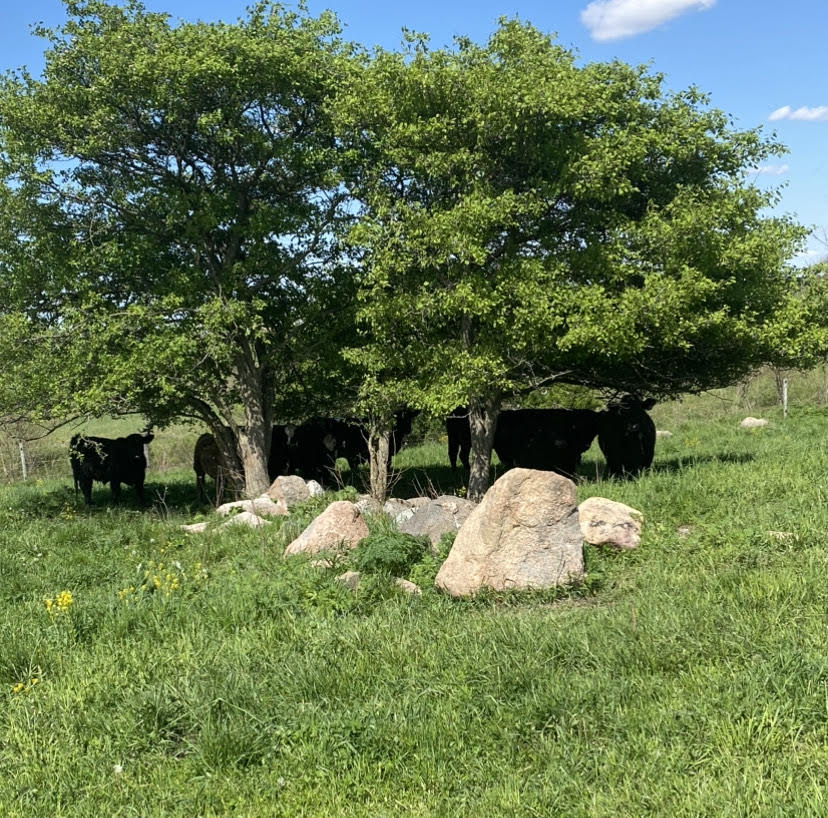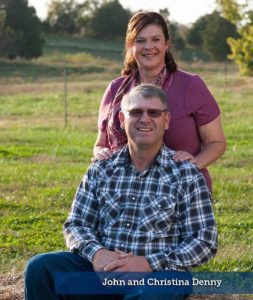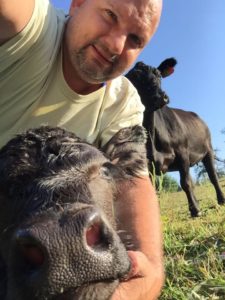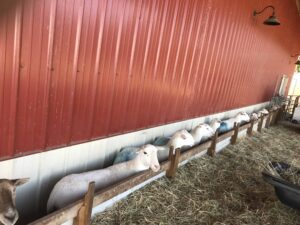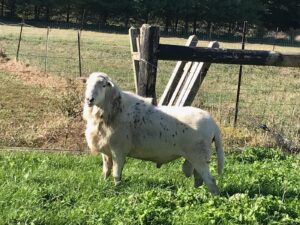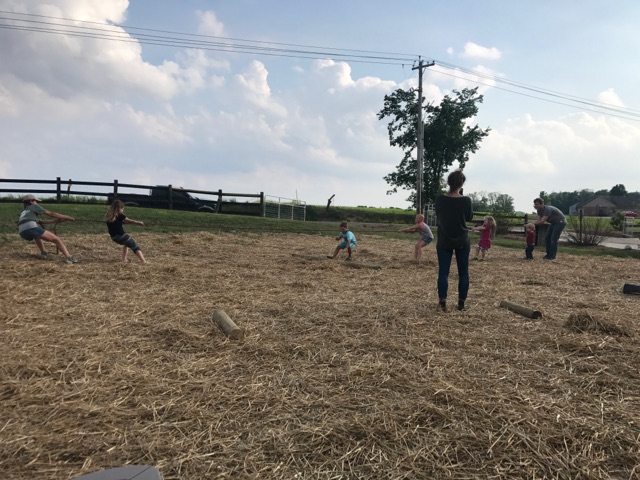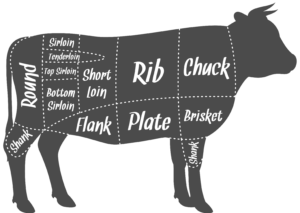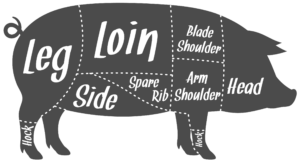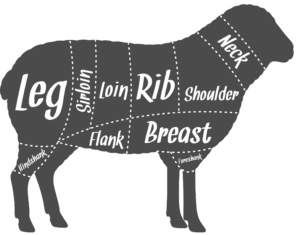
Frequently Asked Questions
Our Process
Why are the Cut Instructions Different
You may have recently encountered our new cutting instructions (CIs) when dropping off your animals or when filling them out on our website. Below we will go over the reasons behind the new CIs and some common Frequently Asked Questions (FAQs).
Reasons Behind the New CIs
- Improved customer experience.
- While we know the adjustment may be difficult for some seasoned customers, we listened to the majority buying freezer beef and pork and understood how confusing it was. Now we can tell farmers and customers exactly what to expect from their order. The technology experience is simplified and they get their order quickly. Knowing ahead of time what to expect sets the farmer, processor, and eater up for satisfaction.
- Quality, Quality, Quality
- Quality is one of the most important services we offer here at This Old Farm. The new CIs ensure we have a memorizable standard that our butchers can learn and easily execute. This helps decrease cutting errors immensely. If the butcher knows what a “Butcher Basic Beef” cut is, they can memorize everything in that package and make your order correctly every time.
- Traceability
- Being a 100% Traceable facility brings some extra complexity and thus costs to the equation. The majority of custom processors do not follow the practice of only giving you back the meat from the animal your farmer wants you to have. Because it is cheaper and more time efficient, most custom processors or freezer meat processors will pool cuts and ground from similar animals, regardless of who the farmer of those animals are. They will then pick your order based on the cuts you requested, and you could be getting steaks and roasts from several different animals. Regulations only stipulate that processors must track the live animals when they arrive at the facility in case one is sick or injured, and must track lots of product through the facility. For example, a lot could be a 2,000 pound bin of ground beef from 10 different animals all from different farmers. The new CI’s give some systemization to our processes whereas before we may have literally had to walk 2 lbs of stew meat through the entire operation to get it to the right order. This was traceability with a high price tag.
- Cost Effectiveness
- As costs of operation have increased along with higher than average inflation occurring over the past few years, we want to be able to bring you the same quality products without having to raise prices on all services.
- Having package deals helps keep costs low by helping to decrease the amount of work our office team has to do to ensure your order is cut correctly. Our Full Custom CIs allow options to be chosen that are mutually exclusive on smaller orders, such as picking both bone-in t-bones and boneless filets and NY strips on a half beef, or picking ham cutlets and ham steaks on a half hog. Having preset CIs for our smaller orders ensures our office and processing teams can be efficient while still bringing you quality meat.
- Training New Butchers
- The CIs allow us to bring new people into the world of butchery. Set packages that do not change allow us to more easily train up people who may not have an extensive background in butchery and meat cutting. This means we are able to offer job opportunities to a wider variety of people at varying skill levels, and they are able to succeed in this business. These CIs have also allowed us to successfully train people for whom English is not their first language. This accomplishment was not previously possible with only fully customizable CIs. As a company we are now able to lift up not only our local farmers, but also our local workforce who may not have these opportunities available in other circumstances.
- We Want to Keep Processing Hogs as a Traceable Facility
- Many other processors have moved to only processing hogs seasonally, or not processing hogs at all due to the increased slaughter and processing costs when compared to beef. Despite the rising costs, we want to keep processing hogs once a week because we know it is a needed service for everyone, from farmers and homesteaders to 4-Hers and freezer pork customers. Having every whole hog or half hog order as fully customized was exponentially increasing the time it took our butchers to cut those orders, and increasing our costs to process hogs. This ties back to our 100% Traceability program. If we weren’t a traceable facility, we could easily do fully customized half and whole hog orders, but you would not be guaranteed to get the animal back that your farmer wants you to have. All the similar hogs would be pooled like most other processors do, and you would get the cuts or smoked meat you requested from several different hogs that may not have even been processed on the same day.
Common FAQs
- Why Can’t I Have My Small Order Cut the Way I Want Without Extra Fees?
- This ties back to our 100% Traceability program. It would be very easy for us to allow fully customized small orders if we pooled all similar animals and picked cuts from that communal pool. But since we are 100% Traceable, it becomes costly to allow every small order to be fully customized without extra fees, because it takes more time to process small fully customized orders than it does to process larger fully customized orders.
- For Example: 8 fully customized half beef orders would take longer than 1 fully customized order with 4 whole beef. This is because each of those 8 half beef orders could all request different steak thicknesses, different roast sizes, and request different cuts to be kept or ground. A single order with 4 whole beef is going to have fewer variables in their cutting instruction, which means our processing team can process that order more quickly and with less chance of cutting errors occurring.
- This ties back to our 100% Traceability program. It would be very easy for us to allow fully customized small orders if we pooled all similar animals and picked cuts from that communal pool. But since we are 100% Traceable, it becomes costly to allow every small order to be fully customized without extra fees, because it takes more time to process small fully customized orders than it does to process larger fully customized orders.
- Why Can’t I Customize a Quarter Beef?
- This is because there is no true quarter of a beef. When you order a quarter beef, you are splitting a half beef with someone else. Due to that we have to make sure that all quarter orders are cut the same. We always have cuts and value-added items like patties available for retail sale if there is something you really want that is not included in the quarter beef standard. It is also very easy to make patties at home using the ground beef from your quarter. Just divide the package into 3 or 4 pieces and hand-pat the meat to get the exact thickness you want on your patty. Making your own patties also saves you some money.
- Why Do Bone-In Steaks and Chops Cost More?
- You could think of the extra charge on bone-in steaks and chops like hazard pay. They are less safe to produce and cause equipment to wear out more quickly. Our boneless steak and chop options do not require the use of a bandsaw, which is like a chainsaw for meat. Making these cuts boneless can be done by hand with a knife, which is much safer for our team members as they have precise control over the knife. To keep steaks and chops bone-in, a bandsaw must be used as regular butcher knives cannot cut through bone. In order to cut through bone, the bandsaw must operate at a high speed, which increases the risk of a team member being seriously injured. The blades used by the bandsaw also wear out with use, they get dull. Getting bone-in steaks or chops causes that blade to dull much faster, as there are more of these cuts. On a half beef you could get 18 t-bones and 12 ribeyes if you kept them bone-in, which means the bandsaw must be used more often, which causes the blade to dull faster, and increases the chance of injury to our butchers. While this may be enough to warrant an extra charge, the addition of additional boneguard and packaging labor further increases the cost to produce. We experience more leaking packages and additional handling when bone in options are selected.
- Why are All My Steaks 1 Per Package? Doesn’t That Cost More?
- Many custom processors use paper wrapping to package your meat. Most paper wrapping is done by hand, so putting multiple steaks in a package would save those processors time and labor, which is why a lot of them charge extra for fewer steaks per package. Here at This Old Farm we utilize vacuum packaging for all of our products, which eliminates a lot of the time and labor associated with paper wrapping (the equipment does it for us!). We have both a manual vacuum sealer that can handle 450+ packages per hour, and an automatic Rollstock machine that can handle 1,000+ packages per hour. Because of the processes we have, it is actually better for us to have all of our steaks 1 per package. That also means when you go to thaw out your steaks you won’t have to worry about thawing too many, you can pick out exactly how many packages you need each time you want to have steak.
Farmer Questions
Why are My Weights Wrong?
Weight discrepancy is a common question for farmers. Many farmers charge their customers based on the live weight of the animal, and many farmers measure this live weight at their farm before sending the animal in for slaughter. Hopefully this FAQ will help answer any questions about discrepancies a farmer may experience when bringing their animals in for processing.
The live weight I took doesn’t match the live weight This Old Farm took!
Weights taken off site can vary from weights taken at slaughter. We know this weight is very important for our farmers who sell on live weight. While our scale is certified we recognize the weight taken at slaughter is often different from the weight taken on farm.
1. An animal held off of feed will lose weight because the rumen or stomach is voided of its contents.
Animals having voided stomachs or rumens before slaughter is very important for employee and food safety. It is important to shrink the rumen as much as possible so it doesn’t tear, causing a food safety issue, or be too big and heavy for our slaughter team members to remove safely. When full the rumen of a beef can hold 25-40 gallons or more of material depending on the size of the animal, and gut fill can account for up to 25% of their total body weight. This means if you have a beef weighing 1,200 lbs, up to 300 lbs of that weight could be from their full rumen if it is not shrunk prior to slaughter!
We recognize you may need to adjust your price per pound on the live weight to accommodate this loss. Another option would be to charge based on the hanging carcass weight as the scale that takes this measurement is more gently used and there is less variation with the weights.
Please note: The customer does not have less meat, they only have less inedible product (hide, hooves, digestive tract, etc.).
2. Not all scales weigh with the same accuracy. This can be verified through weights and measures reporting which is a no fee service offered if your scales are registered for legal tender. We can help you get in touch.
3. Occasionally our live weight scale goes down and needs service.
It gets a lot of abuse from the sheer weight and strain placed on it by normal slaughter activity. When this occurs we use our hanging weights to offer an estimated live weight based on the industry averages. Hogs are estimated at a 70% yield and beef are estimated at a 60% yield. This is just an estimate and your actual yield will vary based on the breed of animal and how finished the animal is. For example a 100% grass-fed steer will tend to be leaner, and have a lower yield than a more finished grain-fed steer.
You can charge off of the hanging weight which is certified or charge for the animal based on what you need to be profitable.
Weighing animals is more complex than one may recognize. We know a lot goes into the work you do on-farm and you need to get paid for it! We are here to make sure we explain this information to you or your customers in a manner that ensures you get paid fairly for your work.
Common Terminology
What is Dry Aging?
After slaughter, carcasses are split down the spinal column, washed down, tagged with all necessary information needed for 100% traceability, and then put into the cooler to dry-age. Beef is typically dry-aged for 6 to 14 days after slaughter (1 to 4 days for pork, lamb, and goat). Dry-aging is an important factor in getting the best quality of meat. During this process, enzymes in the meat change the muscle fibers, which makes the meat more tender, increases quality of taste and adds to the meat’s juiciness. Most meat bought in the U.S is not aged at all, or sometimes wet-aged for a short time. Wet-aging means that the primal cuts (chuck, rib, loin, or round) are wrapped in plastic and stored at cold, above-freezing temperatures. Here at This Old Farm, all of our beef, pork and lamb are hung in our coolers at 34 to 40 degrees for optimal results. After dry-aging, meat is cut and packaged to order.
What Is “Grain-Finished Beef”?
Grain-finishing has been the common way to raise beef over the last 70 years. The cattle spend most of their life on pasture, and are usually given supplemental feed as well. To bring them to final market weight faster, they are then fed mostly grain during the last months of life before slaughter. Grain finished meat has more fat, which many consumer find to be desirable in terms of flavor and ease of cooking. Unlike 100% grass-fed beef, however, grain-finished beef does not have as many of the “good” fatty acids that promote human health, and instead has more of the “bad” fats implicated in health problems. It also packs more calories per ounce, which contributes to weight gain in consumers who make red meat a large part of their diet.
What Do We Mean When We Say “Non-GMO”?
Non-GMO means free of genetically modified organisms. A genetically modified organism is the result of a laboratory process where genes from the DNA of one species are extracted and artificially inserted into the genome of an unrelated plant or animal. The foreign genes may come from bacteria, viruses, insects, animals or even humans. In the crop world, non-GMO means that the plant was grown from seed whose genetics were not artificially modified. In the meat world, this means that the animal was not fed with grain or other feed that was grown from genetically-modified seed. Note that non-GMO feed is not the same as organic feed.
What is “Cage-Free?”
Cage-free refers to poultry that is not confined to a cage. This does not mean that it is free-range or pasture-raised, nor does cage-free say anything about the type of feed given to the birds. Cage-free birds may be raised completely indoors in extremely crowded and unhealthy conditions.
What is “Free-Range”?
Free-range refers to poultry that are not confined to cages and are free to roam. Free-range does not mean pasture-raised. A chicken may be free to range in a concrete floor building with access to the outdoors but without access to pasture. Free-range also does not address the type of feed given to the poultry.
What Do We Mean When We Talk About “Pasture-Raised” Pork and Poultry?
When we say “pasture-raised” we are talking about access to the outdoors and access to grass and other plants that grow in pastures. Pasture-raised hogs and chickens tend to be healthier than those raised in confined operations, because they are not crowded together in ways that allow disease to spread quickly. Their manure drops onto the pasture, creating natural fertilizer that encourages new plant growth. However, note that pasture-raised is not the same as organic, and it does not mean that the animal’s food comes totally from pasture. Hogs and chickens need a complex diet, and generally do not grow fast enough on pasture alone, so they are given supplemental feed. On organic farms, this feed must be 100% organic. On conventional farms, this feed may contain GMO grains, or may be non-GMO, but still grown with pesticides, herbicides, and chemical fertilizers. At This Old Farm, we feel that getting animals out of confined operations and back on pasture is a necessary first step toward turning around our national agricultural system. We encourage our farmers to use non-GMO feed if at all possible, and we are grateful to those who go the extra mile to become certified organic.
Organic
So What About The Recent Buzz That The USDA Organic Standards Being ‘Watered Down’? Is It Hype, Or Is There Reason to Worry? And Am I Better Off Buying Local Or Buying Certified Organic?
It depends on who you ask, but reputable watchdog groups monitoring the integrity of the National Organics Program have raised some legitimate concerns. Most of the concerns center around large corporations that make or market organic foods. For example, dairy giant Horizon Organic came under boycott by the Organic Consumers Association which alleged that the company was not following organic standards. In 2014, the Cornucopia Institute filed a complaint with the USDA alleging that Horizon Organic violated National Organic Program standards in reference to the amount of time their dairy cows spent outdoors on pasture. There are also legitimate concerns over the increasing number of appointees to the National Organic Standards Board who are corporate agribusinesses executives, rather than organic family farmers, as Congress had originally intended. As one watchdog group writes “as powerful food processing interests have increasingly sought to add synthetic and non-organic materials to foods, the NOSB has become a focal point of controversy over what some deem a watering down of organic integrity”.
Still, given the size and rapid growth of organic agriculture and food processing, there is no evidence of widespread corruption of the organic standards or their enforcement, at least at the small farm level. Local inspectors are often small family farmers themselves, and are deeply vested in maintaining the integrity of the organic label. If customers want extra peace of mind, it makes sense to buy organic food that has not passed through far-flung corporate supply chains. Buying directly from small family farmers and food hubs such as ours provides that option.
The debate over whether to buy local or organic is becoming somewhat moot. Consumers are increasingly able to access food that is both local and organic. The benefits of each are countless. Food that is purchased near where it was grown keeps small family farmers in business and money in the local economy. Money that is re-spent locally supports other businesses, creates jobs, and stabilizes communities and regions. Organic agriculture keeps toxic pesticides, modified genes and synthetic fertilizers out of our shared environment. It builds healthy soils that grow more vigorous crops and conserve water. It considers the health of ecosystems. It provides for the raising of animals that have access to the outdoors and are free from added hormones, misused antibiotics, and genetically-modified feed. The benefits of organic agriculture for human health and nutrition are well reported in both the scientific and popular media, and are too numerous to outline here.
Every conversation about food should consider sustainability— of local land and water, local communities, and the family farm. But we also understand that not everyone is able or willing to pay the higher price that is currently attached to organic food. We therefore offer 100% grass-fed, non-GMO, and pastured meats at various price points. We’re happy to answer your questions about our products, and educate you about the benefits of different meats. But the choice of what to buy should still be yours.
What Is Required For A Product To Be Labeled “USDA Organic”?
For meat to be labeled USDA Organic, the farm and 100% of the feed, whether grain or grasses/pasture, and the processing facility must be certified organic. Here’s what the USDA says: If you see the USDA organic seal on a product label, the product is certified organic and has 95 percent or more organic content. For multi-ingredient products such as bread or soup, if the label claims that it is made with specified organic ingredients, you can be confident that those specific ingredients have been certified organic.
The organic standards describe the specific requirements that must be verified by a USDA-accredited certifying agent before products can be labeled USDA organic. Overall, organic operations must demonstrate that they are protecting natural resources, conserving biodiversity, and using only approved substances. A brief summary of requirements is provided here:
For organic crops, the USDA organic seal verifies that irradiation, sewage sludge, synthetic fertilizers, prohibited pesticides, and genetically modified organisms were not used. For organic livestock, producers met animal health and welfare standards, did not use antibiotics or growth hormones, used 100% organic feed, and provided animals with access to the outdoors. For organic multi-ingredient foods, the product has 95% or more certified organic content. If the label claims that it was made with specified organic ingredients, you can be sure that those specific ingredients are certified organic.
What Does “Organic” Mean?
Here is the USDA definition and descriptions of organic: Organic is a labeling term that indicates that the food or other agricultural product has been produced through approved methods that integrate cultural, biological, and mechanical practices that foster cycling of resources, promote ecological balance, and conserve biodiversity. Synthetic fertilizers, sewage sludge, irradiation, and genetic engineering may not be used.
The National Organic Program regulates all organic crops, livestock, and agricultural products certified to the United States Department of Agriculture (USDA) organic standards. Organic certification agencies inspect and verify that organic farmers, ranchers, distributors, processors, and traders are complying with the USDA organic regulations. USDA conducts audits and ensures that the more than 90 organic certification agencies operating around the world are properly certifying organic products. In addition, USDA conducts investigations and conducts enforcement activities to ensure all products labeled as organic meet the USDA organic regulations. In order to sell, label, or represent their products as organic, operations must follow all of the specifications set out by the USDA organic regulations.
So What Does It Take For A Beef To Be Certified Organic?
It is important to note that 100% grass-fed doesn’t necessarily mean organic. Meat which comes from animals that are entirely or partially grain fed can be USDA Certified Organic as well. To be labelled organic, meat must come from a farm that is USDA Certified Organic, and processed in a USDA certified facility. Organic certification requires a rigorous application and inspection process that covers much more than how the animals are fed. Farms may not refer to themselves as organic unless they have met the certification requirements and paid a certification fee. If you want meat that is both 100% grass-fed and organic, look for both “100% Grass-Fed” and “USDA Organic” on the label. See more under “What Does Organic Mean?” above, or visit the American Marketing Services website or USDA Organic page for more information.
Grass Fed
How Should You Cook Grass-Fed Beef?
Because grass-fed beef has less marbling than conventional beef, it needs to be cooked more slowly and at lower temperatures. If grass-fed beef is cooked too fast or too hot, it will be dry and chewy. This is why we typically cut our grass-fed steaks at 1½ inches instead of the traditional 1 inch for conventional beef.
How Is The Meat Different?
Appearance – Grass-fed beef typically is darker red in appearance, while conventional beef tends to be pink or bright red.
Taste – Often people who buy grass-fed beef say that there is a vast difference in taste from conventional beef. Because grass-fed beef has less fat marbling, some describe the meat as “meaty” or “rich in flavor.”
Why Buy Local 100% Grass-fed Beef?
Ecological Sustainability and Animal Well-Being – Cattle (and sheep) are grazing herd animals. Their digestive systems are meant for grasses, not grains. On pasture, the cattle are able to enjoy the life and diet they were meant for. With proper land management, the pasture doesn’t need any chemical fertilizer and their is little loss in top soil. The manure from the cattle goes back to the pasture as natural fertilizer that grows more grass for the cattle. That is the beauty of grass-fed livestock on pasture.
Because 100% grass-fed cattle are not confined, there is less chance of the spread of disease between animals, and less risk of harmful bacteria contaminating the meat. Studies have shown that E-coli bacteria associated with food contamination outbreaks are common in confined beef, but rare in 100% grass-fed beef.
Health Benefits – Grass-fed beef is considered more healthful than conventional beef for several reasons. It is much lower in total fats, including saturated (“bad”) fats than beef raised on corn or other grains. For example, a sirloin steak from a grass-fed steer has about one half to one third the amount of fat as a similar cut from a grain-fed steer. That means you’re taking in fewer calories per ounce. Grass-fed beef gives you more “good” fats, like Omega-3 fatty acids. Omega 3’s are crucial fats for human health. Their consumption is associated with lower triglyceride levels, a decreased likelihood of high blood pressure, less inflammation, and even some protection against Alzheimer’s and other forms of dementia.
What Do We Mean When We Say Locally Raised 100% Grass-Fed Beef or Lamb?
Although the USDA hasn’t yet released an official definition, 100% grass-fed generally means meat from cattle (or sheep) that have lived outdoors on pasture and eaten only grass or other plants their entire lives, from weaning to slaughter. In cold or dry climates, where grasses and other pasture plants die off or grow more slowly during some months of the year, these animals will be fed hay (or moist preserved plant mixtures called silage) while fresh grass is in short supply.
“Local”, according to the USDA definition, refers to food grown within 400 miles of where it’s sold. At This Old Farm, 99% of the animals we process come from farms within Indiana, and almost everything we sell stays in the Midwest. Shorter travel distances mean fresher food and fewer gallons of fossil fuel to get it to your table.
Note that “grass-fed” isn’t necessarily the same as “100% grass-fed”. Meat that is labelled ‘grass-fed’ may come from animals that were fed corn or other grains for nearly all of their lives, and only finished on grass a few weeks before slaughter. Don’t be afraid to ask questions if you’re not sure what’s in the package. Ethical vendors will be able to tell you the history of the products they’re selling.
